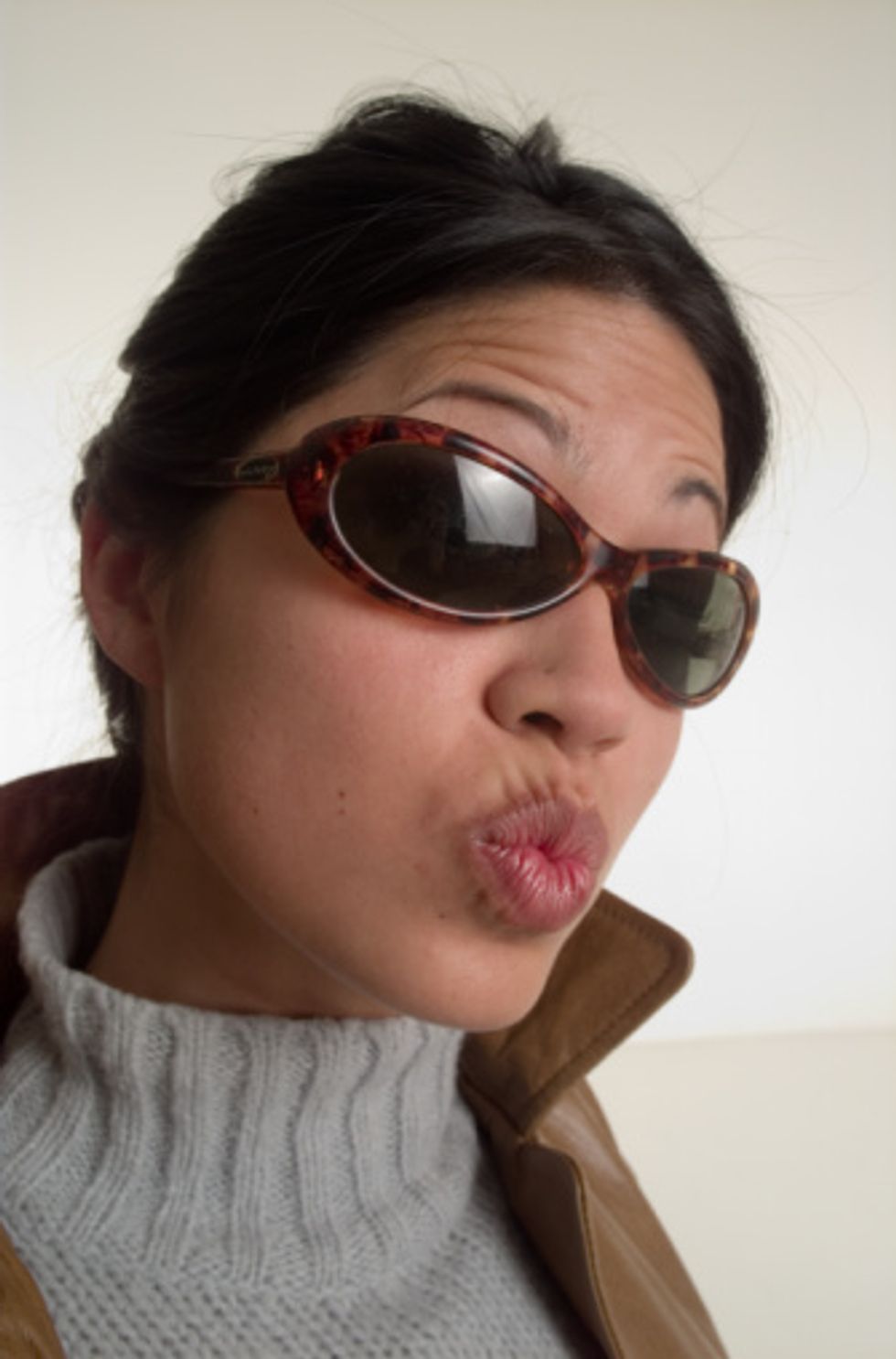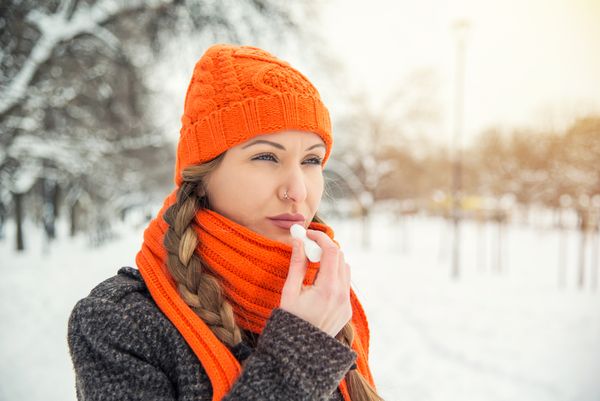Andrea C. from Portland, ME, wrote recently asking how to heal her chapped lips and protect them from future chapping. An avid skier, she says she's tried every balm in her local drugstore but has seen little improvement. I wrote Riley back but, considering it's late December, I'm guessing a few more of us could use some lip therapy too.
So, what pearls of wisdom did I share with her? First I explained why her lips were so chapped and then offered some tips on selecting the best salve for her smacker and even threw in a few DIY ideas for good measure.
The delicate tissue on the lips, easily chapped and prone to bacterial infection, is vulnerable in any weather. Wind and winter chill sap moisture from the lips, but so does exposure to the sun, surf, and chlorinated swimming pools.
Many conventional lip balms contain petrolatum-based ingredients like mineral oil that appear slick and emollient, but because the skin can't absorb them-the molecules are too big-they don't actually condition or heal chapped lips. In fact, they just lie on the surface, creating an impermeable barrier that can actually clog the skin and lead to breakouts and bacterial infections.
Instead, look for natural moisturizers like shea butter, beeswax, sweet almond oil, jojoba oil, or hempseed oil, all of which actually penetrate the skin. If you're prone to breakouts or bumps on the lips, look for lip balms with antibacterial essential oils like rosemary and mint and avoid camphor because it can dry the lips. Aloe vera soothes chapped skin, and menthol can numb the pain if your lips are severely chapped.
Do-It-Yourself: Mix a dab of honey with a bit of brown sugar. Apply to lips and gently massage back and forth with an old toothbrush. Sugar is a naturally abrasive exfoliant, and honey contains an exfoliating enzyme, as well as a mild antiseptic that kills bacteria and a natural humectant that helps the skin retain moisture.







